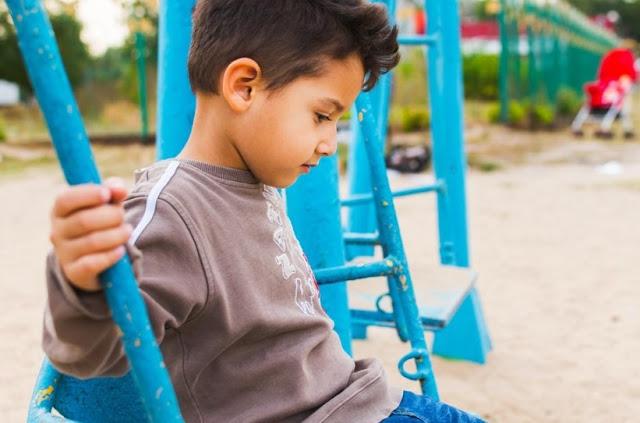What will CPS be keeping an eye on regarding your parent-child visitation sessions?
If you have need a best suitable service your Child Law experience, What will CPS be keeping an eye on regarding your parent-child visitation sessions? with the great process!
Family Law Lawyer Houston: Unfortunately, some parents do not take advantage of the time that is made available to them in Child Protective Services (CPS) investigations. I don’t necessarily mean that these parents do not show up to the visitation location to see their children (though this does happen). What I am talking about is parents who engage in behavior that is inappropriate or disruptive to the environment that is hosting the visit. This is something that is frustrating for all parties involved and is avoidable in most circumstances.
If you are reading this blog post and are going through a CPS investigation of your own then you will want to avoid putting yourself into a situation like this. Sometimes we can’t help the way that we experience emotions regarding our children. As a parent, I know that I will feel a range of emotions on a daily basis in regard to my children. I can say that not even having gone through the difficulties that you and your family are with a difficult CPS case.
The purpose of today's blog post from the Law Office of Bryan Fagan is to share with you how to manage your emotions, those of your children and the expectations that you have surrounding visitation with your child during a CPS case. If you've been reading our blog this week then you will know that many visitation sessions in your case will be supervised. Your interactions with your child are being watched by CPS and judged on whether or not they are appropriate. Avoiding mistakes in behavior and interacting "appropriately" can be the difference between a long and relatively short CPS case.
What concerns are you likely to have while visiting with your child in a CPS case?
The CPS caseworker assigned to work with you and your family will be looking into whatever concerns that you have on an individual level and the emotions that you have that are underlying those concerns.
Do not get into battles over time and affection with your child’s other parent
Many times parents will look at a CPS case as an opportunity to get into a competition for the time and affection of their child. If your ex-spouse is unrelated to the case other than having your child involved, he may see this an opportunity to attempt to win more time with your child once your case is done. On the other hand, you may look at this time as an opportunity to rebuild your relationship with your child and will do everything you can to prevent your ex-spouse from seeing your child.
Regardless of what your particular situation is, the CPS caseworker will be keeping an eye out for behavior like this from you or from your child’s other parent. Their goal is to promote the parent-child relationship between you and your child, as well as between your child and their other parent. Remember that CPS’ main goal in the case is to put your child into whatever situation allows for their growth and maturity while keeping them as safe as possible from any risk of harm.
CPS will want you and your child’s other parent to take as much responsibility as is allowable under the circumstances as far as decision making for your child is concerned. If your child is in foster care then that means that you will not be in a position to care for your child as much as you may like, but you will still retain some decision-making capabilities.
However, you should be cautious to not put yourself into a position where you are having to justify unnecessary behavior in regard to your child and “competing” for their time and affection.
Maintain your sobriety
Kingwood Divorce Attorney: Part of your CPS case will have an emphasis on sobriety if that is determined to be an issue for you in relation to your child and keeping him/her safe from harm. No parent can protect their child at all times, but if you are intoxicated due to your having consumed drugs or alcohol that puts you at a severe disadvantage as far as being able to keep a watchful eye out for your children. If you are allowing other drug users in your home that only adds to the level of danger that you are putting your child into.
With all of that said, you will need to maintain sobriety. Now, from what I have seen it isn’t as if CPS will simply tell you not to drink alcohol or do drugs and then leave you to your own devices to figure out how to do that. Most of the time you will be given an opportunity to attend counseling, therapy, Alcoholics Anonymous and other group sessions that will allow you to work on your sobriety in a team environment.
If you are suspected of using drugs and/or alcohol before or after a visit with your child you will likely see that your visitation with your child becomes even more restricted. Additionally, you may see that CPS brings in professionals who work with addicts in order to help modify your behavior and see to it that your visitation sessions go on without any unnecessary hardships due to your addictive behavior.
Anxious about visiting with your child?
If you are feeling a great deal of anxiety surrounding the first few visitation opportunities with your child, you should know that you are not alone in feeling this way.
Many parents who are in your shoes enter into a case feeling the same exact way. How you interact with your child in a supervised visitation setting can be quite a bit different than how you would if you were at home. You will need to learn how to manage your emotions and to interact with your child in a setting that is unfamiliar to you.
Work with your CPS caseworker before the first visitation session in order to learn what is and what is not appropriate behavior in their eyes. You can seek an appointment with the caseworker to talk about this subject in person so that you have their full attention. A lot of times on the phone you will feel like you cannot ask all the questions you want or receive the feedback you need in order to know how to proceed. Simply call your caseworker or supervisor and ask to speak to him or her in person for a minute.
Planning and coaching you through this step in the CPS case is part of what CPS does. You may have completely different expectations for how these visits will go than the CPS caseworker will. The thing to keep in mind is that the CPS worker has been through many of these cases before whereas you likely have not.
While you may not see eye to eye with the CPS caseworker you should remember that their experience trumps your feelings as far as how the visitation sessions will go. You are likely not going to get 100% of what you want out of the visitation sessions. Your best bet is to take advantage of the time, play by their rules and work on the skills you need to improve in order to have your child returned home with you.
Do not miss the visitation sessions if at all possible
The Woodlands Divorce Attorney: If you can do anything to avoid missing a visitation session you should do so. Transportation issues, sickness, work issues, family issues and a host of other problems can come up that could potentially sidetrack a visitation session. This is unfortunate, yet understandable. However, if it becomes habitual that you are missing visitation sessions then the CPS caseworker will likely seek out some time to discuss that issue with you.
It may just be that you need to more seriously prioritize this time with your child. It could be that you have to travel a great distance to visit with your child. If that is the case then a location closer to your home may be sought. Whatever the case may be, work closely with the CPS employees that are provided to you in order so that you do not miss a single visitation session.
If you are experiencing extreme difficulties in making the visits be sure to share that information with the CPS caseworker. They may be able to help you adjust something to make the visits more manageable. Finally, if you are going to miss a visit with your child then you need to contact CPS as soon as possible to let them know. The same can be said if you anticipate being late for an appointment.
How will CPS approach placing your children into foster care?
The decision to remove your children from your home is not one that is easily reached by CPS. Despite what other people have told you, CPS is not eager to remove your children from your care. Doing so places a tremendous responsibility on the state to care for your children on a day to day basis. The cost and level of care necessary to meet that responsibility can be difficult for the state to meet.
You were likely very upset when your child was removed from your home. I think just about any parent out there who is reading this blog post would feel the exact same way. A mix of emotions- anger, shame, frustration, sadness- are the first that come to my mind when considering how I would feel as a parent were I in that position. Your children are likely feeling a range of emotions that are not dissimilar to your own. Keep that in mind as you begin the visitation process after their removal.
If your children are placed into foster care then those foster parents will need to begin to build a relationship with your child. After all, those folks are taking your place in many ways as far as raising your children and keeping them safe. Their job is not to replace you and your spouse but to stand in on a temporary basis on your behalf while you work on securing your home and building strong parenting skills.
CPS will be guiding the foster family through this process. It isn’t as if the agency tosses your kids to a strange family and then leaves them to their own devices. On the contrary, the CPS caseworker has methods and tricks at their disposal to help this family learn how to take care of your child in the best manner possible.
The foster family will understand how important your relationship is with your child. Odds are decent that the foster family will have other children in the house besides your kids. CPS will look to make sure that the foster family is doing everything it can to encourage your children to enjoy their time with you and to build a good relationship with you.
The basis of this process is that the foster family will need to understand that they are not in that position to take on the permanent responsibility of raising your kids. They are placeholders. An important placeholder, but a placeholder nonetheless. Their job is in part to do what it can to help with the ultimate goal of your CPS case, which is likely reunification of your child with you in your home.
More on foster families and CPS cases in tomorrow’s blog post
Spring Divorce Lawyers: If you would like to learn more about the role of foster families in CPS cases then please do not hesitate to contact the Law Office of Bryan Fagan. Our licensed family law attorneys work on behalf of clients across southeast Texas and do so with a great deal of pride. We have achieved superior results for our clients across the state by focusing on client goals and working tirelessly to help achieve those goals.
A consultation with one of our licensed family law attorneys is free of charge. Please contact us today to set up a consultation where you can receive direct feedback about your case and where you can learn more about our office and the services we offer clients ... Continue Reading



Comments
Post a Comment